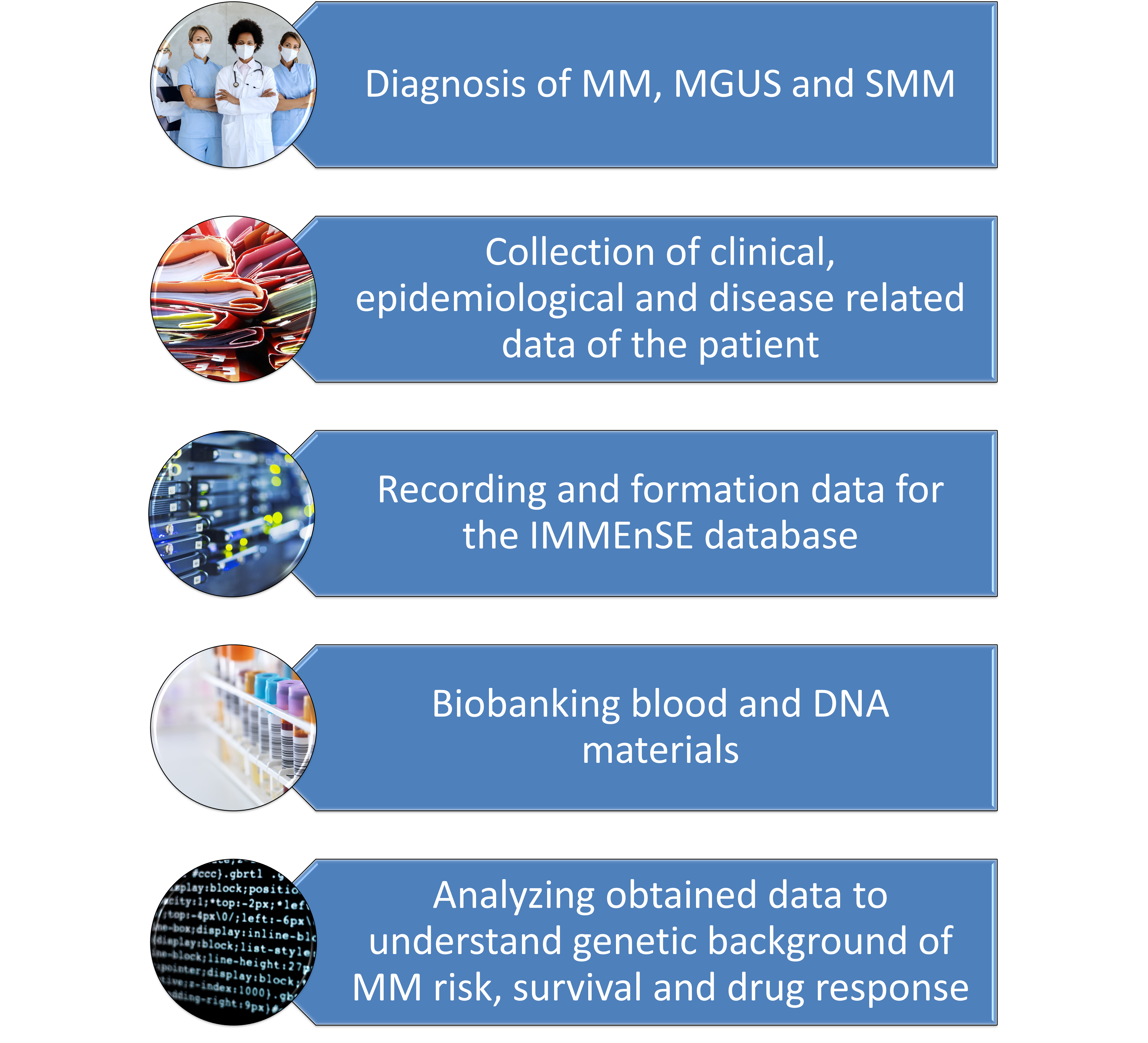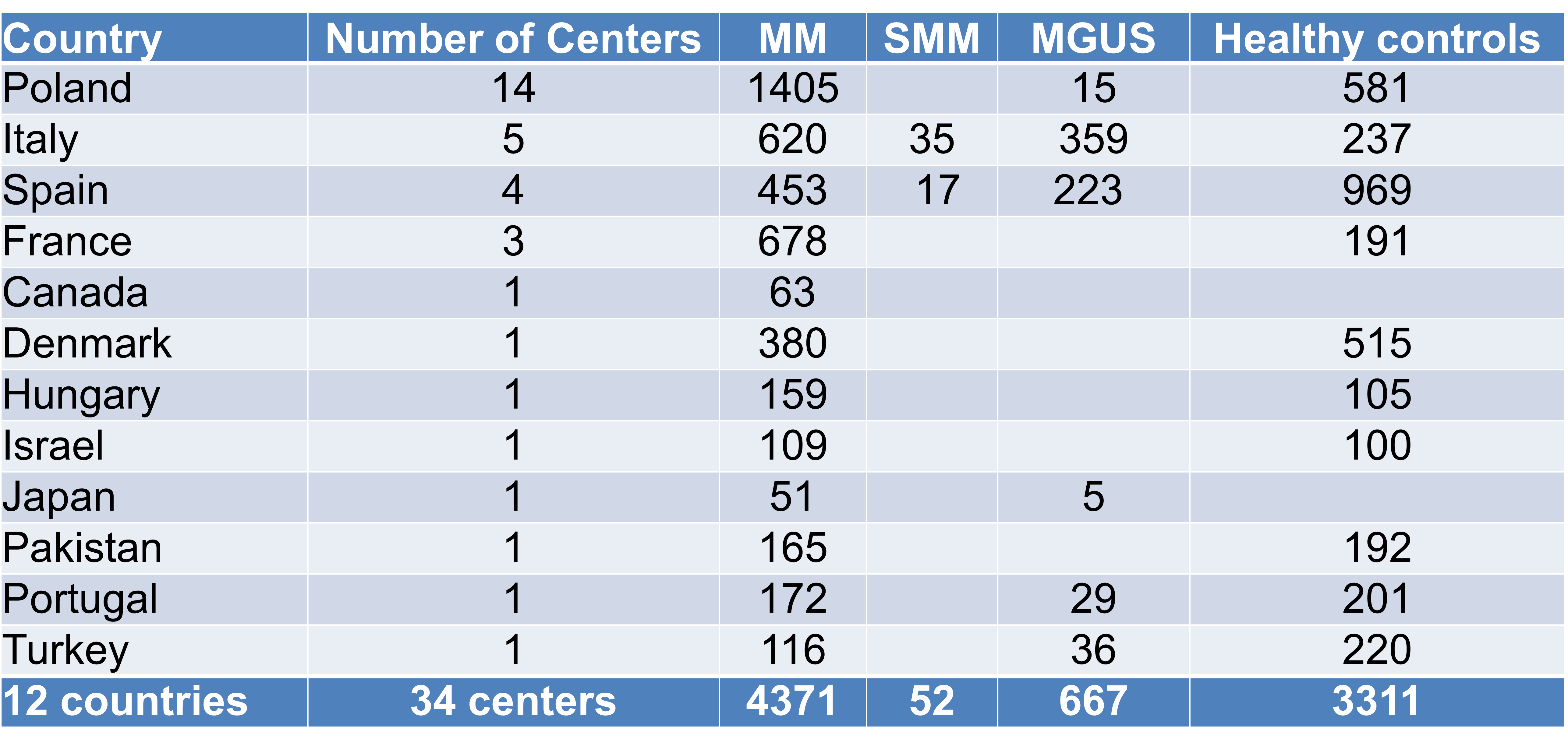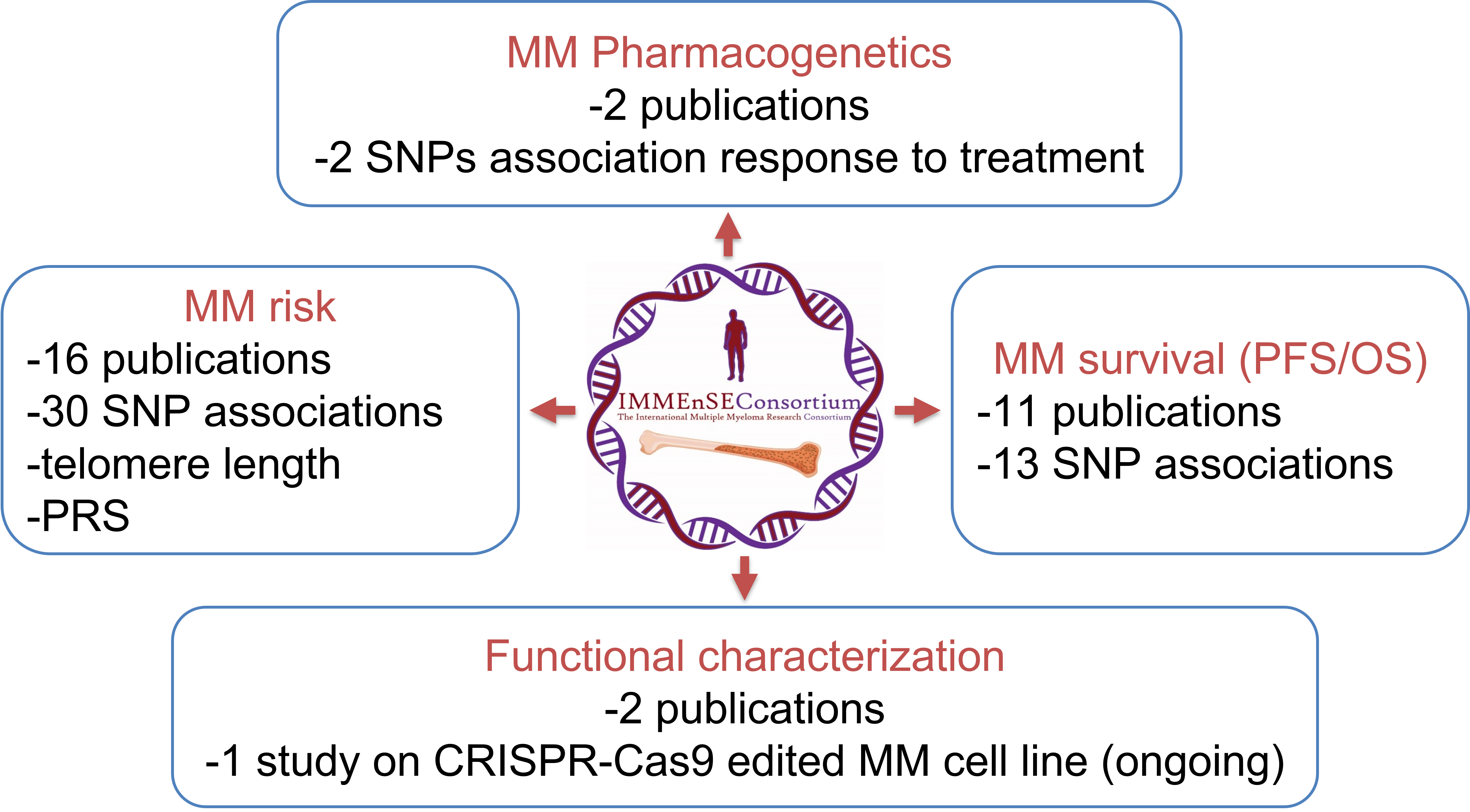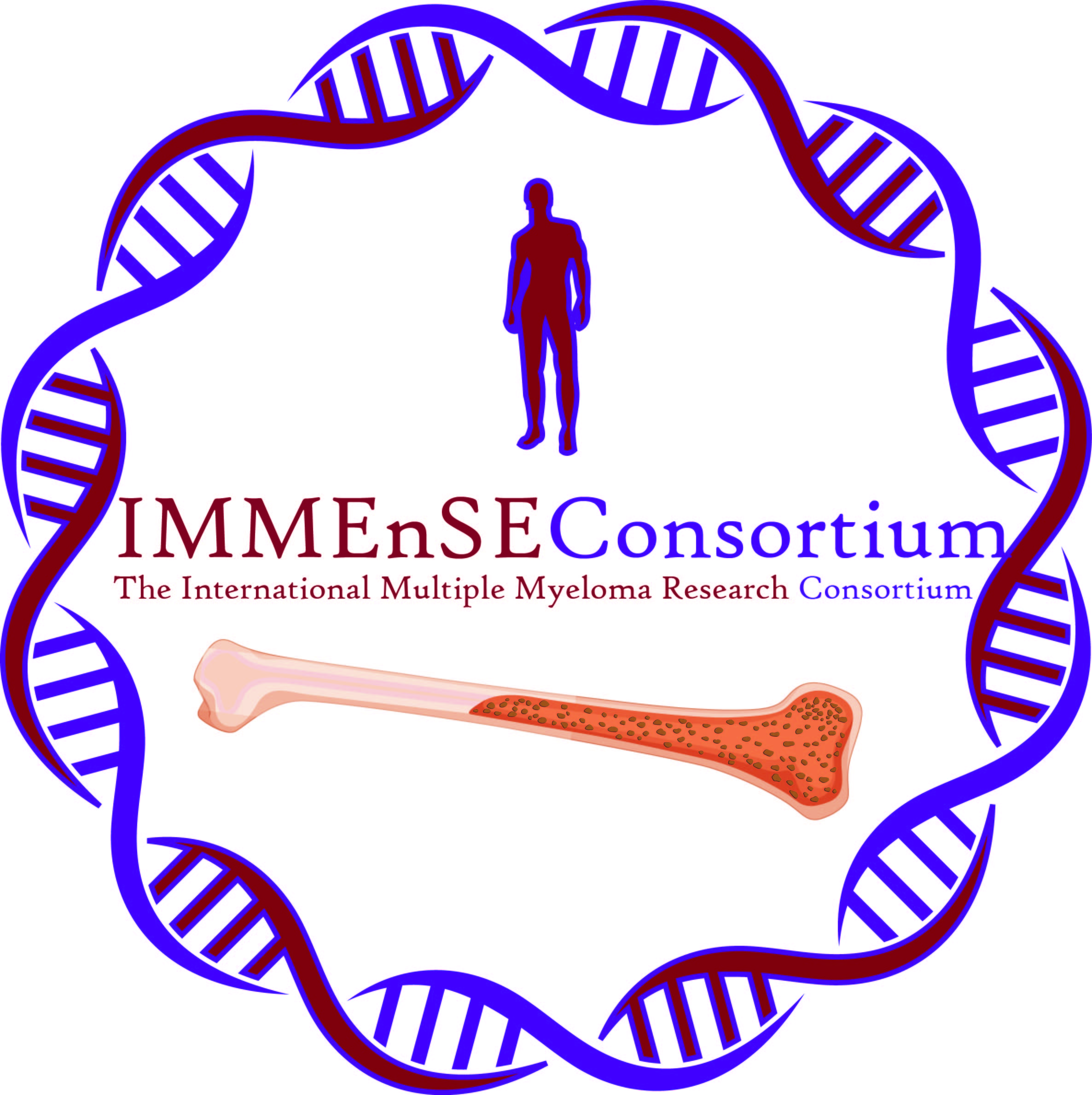About Us
Multiple myeloma (MM) is a cancer of the bone marrow, accounting for 0.9 % of all malignancies and 1.2% of cancer-related deaths worldwide in 2020. We established the IMMEnSE (International Multiple Myeloma rESEarch) consortium to increase our understanding of the germline genetic determinants of MM risk.
How IMMEnSE works?
IMMEnSE is a retrospective case-control study in which the biobank has accumulated blood and DNA samples of cases of MM, monoclonal gammopathy of undetermined significance (MGUS), smoldering MM (SMM), and controls. The IMMEnSE database contains demographic, clinical, and epidemiological information. Both are located at the Genomic Epidemiology Group of the German Cancer Research Center (DKFZ).

Sample Size
At present we have blood and/or DNA samples of 4371 MM, 667 MGUS, 52 SMM, and 3311 controls from 12 countries, mainly in Europe (Table1, Figure 2, last update on 20/10/222).

Our database contains information on age at diagnosis (mean=56.70, SD=15.04), sex (51.53% male), stage of MM (Durie-Salmon and International Staging System), therapy and response, survival, comorbidities, BMI, smoking status, family history and other clinical variables. IMMEnSE has contributed to the identification or confirmation of 41 SNPs and other genetic markers that contribute to MM predisposition and survival (Figure 3). Additional genome-wide association studies are ongoing in collaboration with other international consortia.

IMMEnSE Studies
The IMMEnSE consortium contributes to the stratification of MM risk by uncovering germline genetic risk factors. Thanks to the IMMEnSE consortium biobank and database, additional SNP discovery will allow the use of the genetic background in the prevention and prognostic prediction of MM. Recruitment of additional collaborating groups is ongoing.

